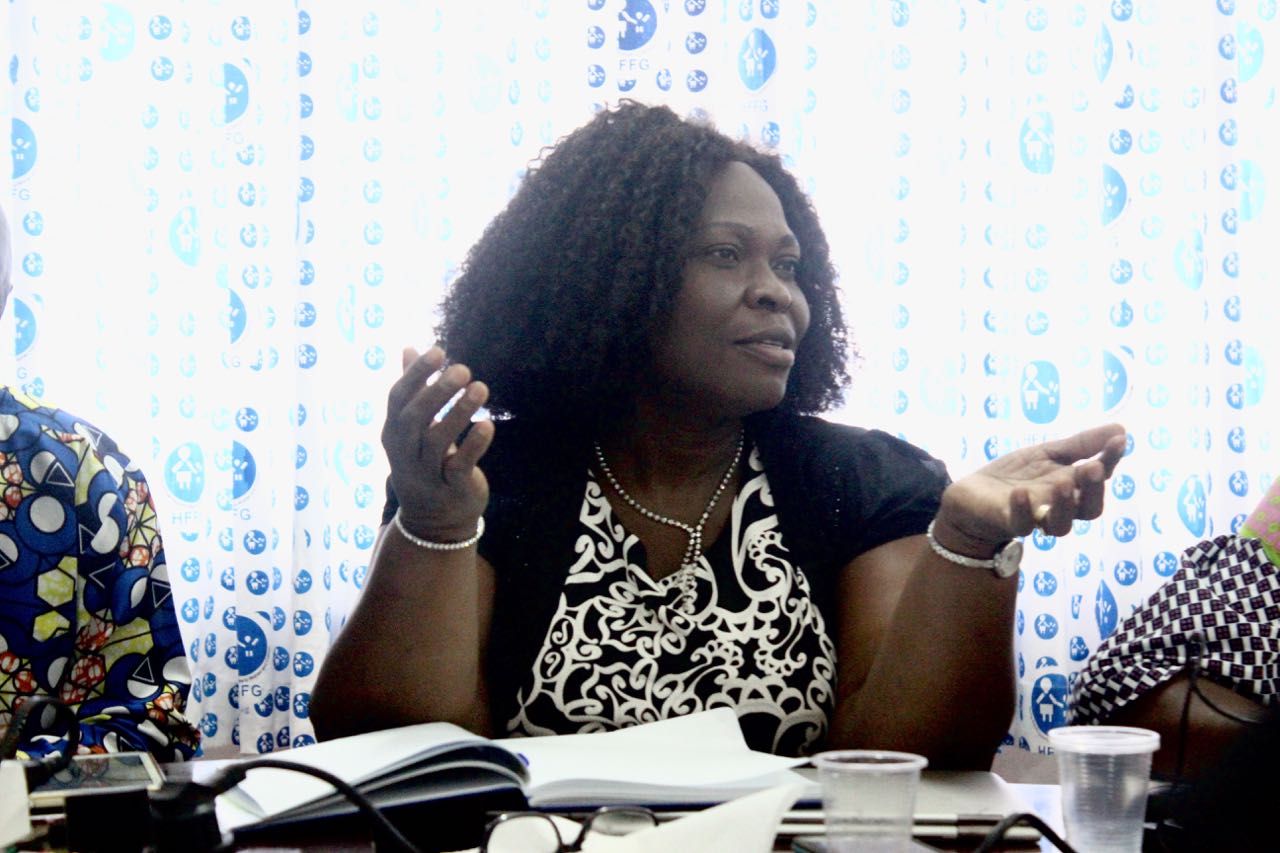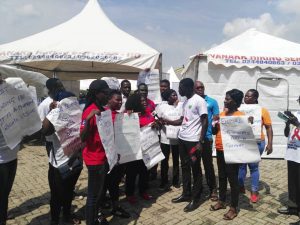At the NSA –Ghana End of Year planning meeting a key agenda point was the groups’ advocacy plan for early 2019 where Counterpart funding/financing advocacy will be the main activity.
For those unaware of what counterpart funding / financing is, Counterpart funding / financing is the total of the government’s contribution to all national disease programs (HIV/AIDS, tuberculosis and/or malaria as applicable to a country) which in the context of the Global Fund, one of the major donors to heath care in Ghana, either have existing Global Fund support or a funding request under consideration. This counterpart funding/financing is however not unique to the Global Fund and actually has various donors also having this as a requirement for support they provide to the country. Other examples are that of United States Agency for International Development (USAID), and the Global Alliance for Vaccination and Immunization (GAVI).
The rationale behind counterpart funding/financing is to increase country ownership and build the sustainability of programs. To this effect, donor agencies such as the Global Fund funding model includes a requirement for countries to commit to co-financing the response to AIDS, TB and malaria.
Counterpart funding consists of two elements:
- Counterpart requirement, where countries are required to commit that, during the implementation period, they will:
- Increase government spending on health
- Increase co-financing of Global Fund-supported programs
- Counterpart incentives, where of the total amount allocated to each country, at least 15 percent (15%) will be made available to encourage countries to make additional investments in their response to the three diseases. To access the incentive portion of their allocation, countries will need to commit to additional co-financing investments over and above previous levels of spending.
Important to know is that Co-financing is defined as all domestic public resources and domestic private contributions that finance the health sector and national strategic plans supported by the Global Fund. Domestic public resources can therefore include government revenues, government borrowings, social health insurance, and debt relief proceeds. Domestic private contributions include verified contributions from domestic corporations and philanthropies that finance national strategic plans. So therefore all a country will need to do is both contribute to what it has pledged but also keep good track and documentation of its contributions so these can be captured well through effective communication however with the donors.
Ghana however, for some years now is been lagging behind in its commitments to donors and as such is losing its credibility amongst these key entities that help Ghana in managing various health programs.
Ghana continues to be very inadequate in terms of its communications with these donors as well leading to them not taking Ghana serious and having to take measures to hold the country accountable. Unfortunately these are leading to measures such as drops in country grant allocations, deduction of monies due them from current allocations meaning that these are coming out of areas that have been budgeted for, for other interventions. All these are leading to less money for Ghana and directly affecting various health programs negatively.
Additionally, Ghana does not show credibility when donor monies have gone to ‘waste’, some clear examples being the incident that occurred with the burning down of the Central Medical Stores. Having lost over 27 Million USD in this fire, most of which was donor funding. Till date the government has not been able to give accurate account of what happened nor how it intends to pay back donors money that went lost. Despite given the opportunity to offset some of these debts by showcasing milestones and other achievements, Ghana has failed to do so and as a result continues to be in the ‘bad books’ of donors such as the Global Fund and USAID among others.
A few years ago, when defective condoms were detected to have been procured by Ghana, a total of about 800,000 USD had to be refunded to the Global Fund. Having extended the deadline for this repayment as well as many communications back and forth between the Ghana and the Global Fund, Ghana did not keep its credibility by paying consequently, at the last Board meeting of the Global Fund, this money (in a total of 200% interest) was taken out of Ghana’s current (2018 – 2020) Global Fund allocation. This is sad, as this means that this 1.6 Million USD is coming out of an area of program that had been budgeted for for this current funding years.
Similarly, Ghana was quick to sign an MOU with USAID accepting a grant of 27 Million USD towards the procurement of some HIV commodities including Anti-Retroviral medications to enable the country adequately manage Persons Living with HIV on treatment including new ones being enrolled. Here again, Ghana failed to honor its commitments to this MOU necessitating the cancellation of this MOU sometime in the third quarter of 2018. This has resulted in the funds no more going into procurement of commodities with the risk that if Ghana does not honor its role in procuring anti-retroviral medicines by end of January 2019 to complement what the Global Fund is doing to keep PLHIV on treatment, there is going to be a stock out of ARVs in Ghana.
Ghana is also required to procure HIV test kits and if we want to keep on track with the global 90/90/90 targets, we will have to ensure this is done to be able to have enough test kits to test people. The same applies to what we call SP which is Sulphar pyrimethamine, which are medications given to pregnant women to protect them from malaria during pregnancy. If these medications are not procured by the government soon, there will be a stock out of these medications as well.
What does all of these mean for Ghana?
As it is simply put, ‘it is the ordinary Ghanaian who is going to suffer’.
Persons Living with HIV will not be able to be sustained on treatment, let alone newly diagnosed ones will not be able to be enrolled onto treatment.
Ghana will continue to fall behind in the global 90-90-90 targets meaning that Ghana will fall behind in reaching epidemic control of HIV.
Pregnant women and their unborn children will be at risk of malaria with all its complications if we do not have access to SPs.
Ghana will continue to lose monies from current and upcoming grants and might even stand a chance of losing out totally on any funding support due to credibility issues.
Ultimately, the ordinary Ghanaian will be the one to endure all these consequences.

NSA – Ghana champions Advocacy on honoring of Counterpart funding.
NSA – Ghana’s plan of Advocacy on Counterpart funding:
Issue: Counterpart funding
Goal: Ghana to honor its counterpart funding /financing commitments
Result: More money, more efficient use of it, better health outcomes for all.
Within the first month of 2019, January, NSA – Ghana will roll out this advocacy plan. Keep in touch for updates and see how you can be a part of making Ghana a healthier place.


